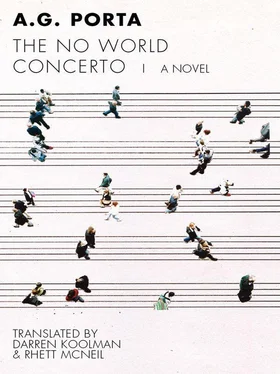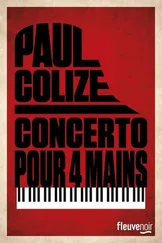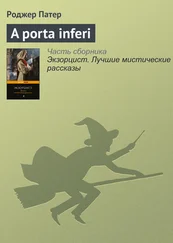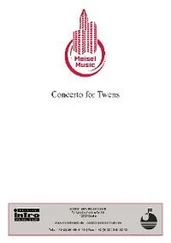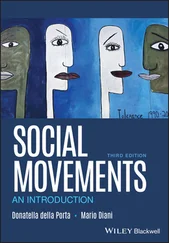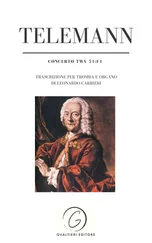A. Porta - No World Concerto
Здесь есть возможность читать онлайн «A. Porta - No World Concerto» весь текст электронной книги совершенно бесплатно (целиком полную версию без сокращений). В некоторых случаях можно слушать аудио, скачать через торрент в формате fb2 и присутствует краткое содержание. Год выпуска: 2013, Издательство: Dalkey Archive Press, Жанр: Современная проза, на английском языке. Описание произведения, (предисловие) а так же отзывы посетителей доступны на портале библиотеки ЛибКат.
- Название:No World Concerto
- Автор:
- Издательство:Dalkey Archive Press
- Жанр:
- Год:2013
- ISBN:нет данных
- Рейтинг книги:4 / 5. Голосов: 1
-
Избранное:Добавить в избранное
- Отзывы:
-
Ваша оценка:
- 80
- 1
- 2
- 3
- 4
- 5
No World Concerto: краткое содержание, описание и аннотация
Предлагаем к чтению аннотацию, описание, краткое содержание или предисловие (зависит от того, что написал сам автор книги «No World Concerto»). Если вы не нашли необходимую информацию о книге — напишите в комментариях, мы постараемся отыскать её.
, Vila-Matas's
, and Marías's
is a many-layered puzzle concerning an old screenwriter who has holed up in a shabby hotel in a never-named but familiar city in order to write a script about his lover — a young piano prodigy who wants in turn to give up music and become a novelist, and who believes she may be in contact with creatures from another world. Ambition, lust, hate, and the need to create all combine to make up a potent depiction of youth — and age — lost in a labyrinth of their own making.
Sinister and erotic, shifting restlessly between realities, and populated by conspirators both real and imagined,
is an investigation of the limits of language, storytelling, and the known world, set against a backdrop of empty concert halls and hazy foosball bars. It is the first of A. G. Porta's books to appear in English, finally joining those of his early writing partner and devotee Roberto Bolaño.
No World Concerto — читать онлайн бесплатно полную книгу (весь текст) целиком
Ниже представлен текст книги, разбитый по страницам. Система сохранения места последней прочитанной страницы, позволяет с удобством читать онлайн бесплатно книгу «No World Concerto», без необходимости каждый раз заново искать на чём Вы остановились. Поставьте закладку, и сможете в любой момент перейти на страницу, на которой закончили чтение.
Интервал:
Закладка:
We cut to a scene in an office where the girl is sitting impatiently with the young conductor, brilliant composer, and her mother. The young conductor’s latest conquest is also present, but at this point, there’s nothing new in that. The office’s glass walls make visible a large space where journalists, editors, and other employees are buzzing around like drones. The screenwriter pays without tipping, and makes his way back to the hotel, sticking to the narrow, winding streets that might otherwise be described as confining, labyrinthine, for he wants to empathize with the girl, confined in that office with people she dislikes. He walks slowly, leaning on his cane, the newspapers folded under his other arm, thinking about the girl, about the old guy in the classically-cut suit, the cathedrals, and the Little Sinfonietta, before deciding to stop at an ATM. He inserts the card and enters his PIN. He can’t believe his balance; his account’s almost empty. He takes out enough to survive on for the next few days, and then goes looking for a telephone booth. He wants to ask the producer for another advance, but no one answers the call. He checks the time. Perhaps he’s gone out. He calls the office, but again no one answers. Most businesses are closed for vacation in August, but he decides to try again later. He hangs up and continues to the hotel. If the producer asks to see part of the script, he’ll have to send him something more than sketches for a series of scenes. He’ll have to structure them better, arrange them in a sequence, and type them up. When he reaches the hotel, he stands in front of it for a moment, remembering the far better hotels he’s stayed in before. But duty presses him to forget about this. So he wobbles through the door and proceeds through the lobby, following the frayed track in the carpet that leads to the elevator. On entering his room, he wastes no time in sitting at the typewriter and cleaning up the scene where the girl finds out about the scientist’s illness. Then he tries calling the producer again. He sits at the edge of the bed listening to the rings, until the phone cuts out and he puts it back on the hook. Then he grins mischievously, as a bad guy would in the movies, picks up the phone again, and calls his own house. He waits five rings before hanging up. He stops smiling, remembers the pressing duty he’s already postponed too long, and returns to his post at the typewriter.
During the interview, the young conductor and brilliant composer act as if their partnership with the girl is destined to go on forever. The girl, on the other hand, is withdrawn, unable to get the article about the old guy in the classically-cut suit out of her head — a guy she discovered was a scientist, an astrophysicist and expert researcher into the possibility of life in other galaxies, a scientist who may in fact be on his deathbed. So she ignores all the questions, lets the others answer them. In fact, she doesn’t participate in the interview at all. The interviewer is a music journalist with a special interest in the Little Sinfonietta, who happens to work for one of the neighboring country’s leading newspapers. So, according to the girl’s mother, the interview is crucial for promoting the tour. The young conductor of the orchestra says you can never be too young to be a conductor, a composer, or a performer. Then he says the individual roles aren’t important in themselves, but that all three must work together if any one of them is to succeed. The girl observes the scene while listening to him sensationalize their story, a story like so many others, about a bunch of unruly kids who have a certain special something about them, a certain aura that sets them apart from other kids, other people. The kinds of kids who are sent to the Scholastic Institute so they can be with other special kids, other people who’ve been labeled exceptional, gifted. The term’s been overused, even abused. What teenager doesn’t believe he’s going to change the world, that all his ideas are great, original? Everyone thinks they’re special at our age, but the young conductor of the orchestra would like to believe that, in our case, it’s a fact. So he affects a grandiosity and self-assurance to give the journalist a visible manifestation of the fact — rattling on about the avant-garde, about how we’ve been, at one time or another, Futurists, Dadaists, Surrealists, and even all three at once, since ours is perhaps the era when the vanguard finally comes to fruition; blathering on about how we have the best of everything, the best age, the best education, the best future, the best opportunity to achieve success, even glory. The girl’s eyes move from the young conductor to her mother, who knows he’s exaggerating, but is nonetheless mesmerized by the future star’s adept handling of the interview. Perhaps our time’s finally come, she hears him say. Then the girl turns to look at the latest conquest, sitting over there, imitating the journalist’s posture, his actions, taking her own notes. The journalist then asks the girl how she came up with the idea of throwing the clown’s nose into the crowd. The girl is stumped. That was perhaps the only spontaneous moment of the entire concert. She eventually says she’s getting sick of having to repeat the same performance over and over, like a ritual. It didn’t seem authentic. The others look at her, stupefied. Anyway, there was an urgent need to bring in extra noses, since the first offering to the crowd set a standard for the rest of the performances, but she’d have preferred to do something different every night instead of ritualizing that one spontaneous act. She thinks, for example, that she could’ve done a performance wearing the jersey of the soccer team she supports, with her favorite player’s name on the back. Then, after the concert, she’d exchange shirts with someone in the crowd. Number ten, she adds, a controversial player at the moment. The reporter isn’t aware he’s been in the news for refusing to return to training. Perhaps he doesn’t even know who the player is. A controversial player for a controversial young woman, her mother must be thinking. There are other questions, but the girl stops paying attention because she feels that the group is just reaffirming its commitment to a future of exploitation, of doing what’s expected of it, the same as so many young men and women in the past who were threatened by their parents with disinheritance unless they abandoned their dreams, did what they were told, married who they were told to marry. No writer who’s worth her salt would ever abandon her dreams for lucre. So she remains silent, happy to let the time run by until the end of the interview, thinking that it’s all just part of a game — quite a pretentious one, but a game nonetheless. But just as all this is going through her mind, the journalist interrupts her rumination: I’ve read somewhere, or maybe someone told me, that you say you can hear voices: I don’t mean like the one you’re hearing now, of course, but voices from another world.
The screenwriter remembers he hasn’t eaten, so he makes a couple of sandwiches and eats them at his desk while rereading some passages and taking notes. Once finished, he rests a while before freshening up and going out. He’s still thinking about the girl’s interview. Fucking spoiled brats, he thinks, annoyed at the kinds of kids who are given everything on a silver platter, who hardly do any work and still succeed, who achieve their dreams without breaking a sweat. He’s well acquainted with the type. They were once his students. He grants that they’re special, uncommonly talented, but talent isn’t enough. There’s no merit, no accomplishment, if it comes too easily, he thinks. He leans on his cane and starts limping toward the fountain in the center of the plaza. He prefers people like the girl’s father, guys who had to struggle to achieve their goals, who had to kick down doors, not have them opened for them; the kinds of people who would lie, cheat, and steal, if necessary, to succeed. But then they have children, mollycoddled brats who are given the freedom to do whatever they wish, to cast aspersions on the world while playing musical games like dodecaphony, or whatever, who invent silly terms like “No World,” who have parents that allow them to sulk through a very important interview, who didn’t have to shed a drop of their own blood for the fortune they’ll eventually inherit. Who’ve never experienced suffering, he concludes. What would he have written about if he didn’t have this script about musical prodigies? The screenwriter contemplates the café terrace on the other side of the plaza. The barmaid notices him watching, but continues cleaning the table before hurrying back inside. What would he have written about if he was free to choose? He doesn’t know. Maybe screenwriters were treated differently back in the golden age, had more freedom. The golden age, he repeats aloud, addressing the fountain. Might there be any truth to such myths? He likes to think so. At least it’s something to believe in, periods in history far better than the present one, which the world won’t see the like of again, something to look back on when there’s nothing to look forward to. He wonders if, sometime in the future, there will be a golden age he’ll be too old to appreciate, too set in his ways to understand, or too blind to even recognize. Where are the myths about today, for example? He smiles to himself. There can’t be a golden age happening now. If a golden age stuck its head over the parapet, the marketplace would shoot it off. Maybe he’s deceiving himself, maybe he’s living in the middle of a golden age, and he’s the only screenwriter everyone’s ignoring, because he’s considered unfashionable, unmarketable, by those who think he’s only an old retiree who supplements his pension by teaching a bunch of brats, some of whom are not only gifted but rich — twice blessed, in other words — as if having one or the other isn’t enough. Maybe he truly despises these kids, resents them. He doesn’t want to think about it. He turns his attention to modern cinema, which he feels he knows less and less about every day. Perhaps it’s because he hasn’t been paying attention, or hasn’t been keeping up, or whatever — he can’t think of the right phrase. Perhaps his preoccupation with the past has caused him to fall behind, made him antiquated, and he hasn’t the strength or desire to catch up. Besides, it would be an uncomfortable transition, to suddenly return to the present. He can’t cope with sudden changes. Unlike the girl’s father: an old agent asleep in bed who is suddenly awakened by a phone call, a knock on the door, or a gunshot, or something, and finds he has to immediately adapt to this alarming situation. It’s an old movie cliché that’s been used again and again, to good effect, over the years. The screenwriter doesn’t want to think of himself as an old cliché that still has its uses. An out-of-shape soccer player, rather, that’s lost his passion, his instinct for the game, and is consequently at the point of retiring. He’d liked to have written about two old detectives who come out of retirement to solve a cold case that’s been obsessing them for years: men who live in the past, in their memories. It’s an old idea, about which he couldn’t even manage a first draft. Why? He doesn’t know. He doesn’t even know why he began thinking about those old detectives just now. If he hates these gifted kids so much, what is it he finds so enchanting about the girl? Not only is she rich, and a paragon among child prodigies, she’s also famous: thrice blessed. He should hate her more than all the rest, but he doesn’t, he isn’t able. Is there only so much hatred one can harbor for a person before it somehow short-circuits? All he knows is it’s a contradiction. He circumambulates the plaza. When he passes the café, he notices there aren’t many customers, and he can’t see the waitress, so he decides to pass it by. He needs to do some thinking anyway, and he prefers to walk while doing so, and he won’t stop until he resolves the contradictions in his story, and he assumes they can all be resolved during a single stroll. Two retired detectives remembering the old days. An idea no one today would touch with a barge pole. But what about the guy who agreed to produce the screenplay he’s writing now? Contradictions, he murmurs while walking to the hotel.
Читать дальшеИнтервал:
Закладка:
Похожие книги на «No World Concerto»
Представляем Вашему вниманию похожие книги на «No World Concerto» списком для выбора. Мы отобрали схожую по названию и смыслу литературу в надежде предоставить читателям больше вариантов отыскать новые, интересные, ещё непрочитанные произведения.
Обсуждение, отзывы о книге «No World Concerto» и просто собственные мнения читателей. Оставьте ваши комментарии, напишите, что Вы думаете о произведении, его смысле или главных героях. Укажите что конкретно понравилось, а что нет, и почему Вы так считаете.
